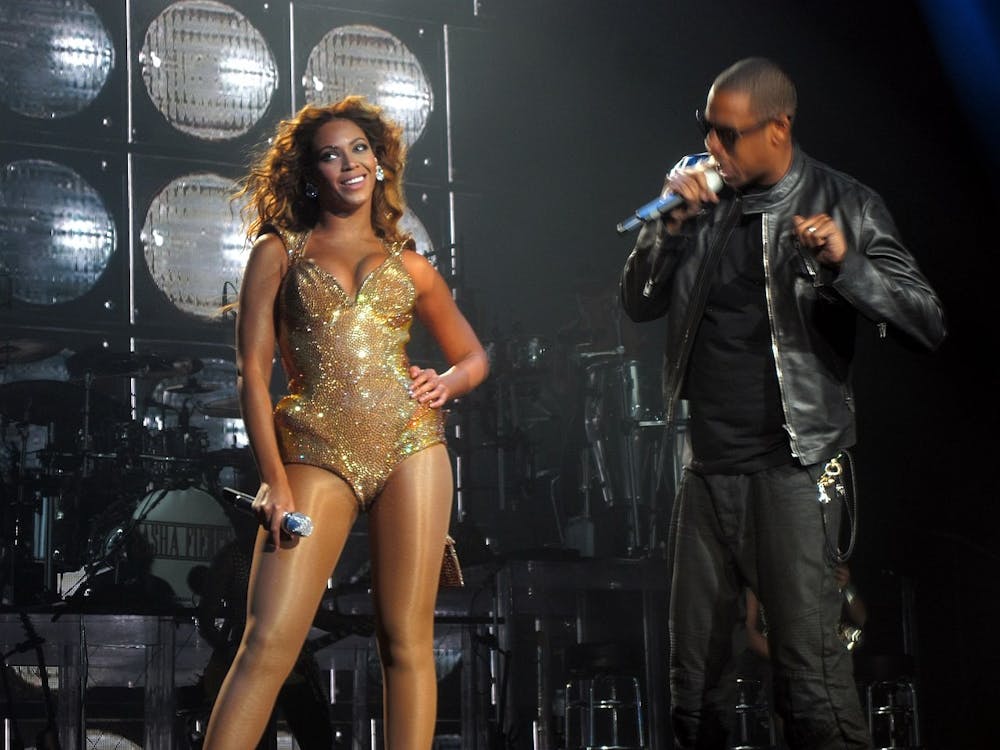Author Michael Eric Dyson came to the Hopkins campus on Tuesday to discuss his new book, Jay-Z: Made in America, which analyzes both Jay-Z’s history as a rapper as well as his contributions to society through his rap and philanthropy.
Dyson also spoke about the cultural influences that Jay-Z demonstrates in his art, as well as his work with the Black Lives Matter movement.
Dyson stated that he wrote Made in America because he believed that Jay-Z has offered and continues to offer a powerful connection to the context of the surrounding world in his music.
Dyson touched on three of the main themes behind Jay-Z’s work that he found most important and influential: hustling, poeticism and politics.
Dyson explained the character of Jay-Z’s ability to hustle.
“[There are] people who are engaged in new schemes, new ideas, always trying to come up with the next business venture,” he said.
In an interview with The News-Letter, Dyson explained that he was interested in Jay-Z because of the rapper’s rhetorical genius.
He cited Jay-Z’s ability to cover important topics while rapping and explained that his work is strategically targeted to force his audience to engage with serious issues.
“Jay-Z as a poet is engaging in the kind of rhetorical sophistication, the kind of verbal invention, the kind of intellectual imagination... to really deal with slavery, Jim Crow, segregation and economic inequality,” he said.
Dyson added that Jay-Z’s skill as a rapper allows him to cover these kinds of subjects.
“He talks about a lot of stuff besides booty and materialism. But he had to do that in order for people to listen to him... Jay-Z’s rhetorical command and mastery were pretty sharp and pretty amazing.”
On a similar note, Dyson added that Jay-Z’s deft ability to weave his discussion of politics into his music is one thing that sets him apart from many other rappers.
Dyson discovered that Jay-Z has been talking about politics from his very beginning as an artist after reading lyrics and listening to music from both Jay-Z’s past and present work.
“He’s been talking about stuff from the get-go, about serious issues in America, about political issues and matters like police brutality,” he said.
He went on to discuss Beyoncé’s response to the book, following its publication.
“She said, ‘I just want to thank you for always having our back and showing me love,’“ he said.
Dyson closed his talk with a brief discussion about Jay-Z’s recent involvement in the National Football League’s relationship with Colin Kaepernick.
According to Dyson, Jay-Z gave him permission to quote his lyrics as much as he wanted to in his book with no threat of copyright infringement.
“He does like it — I mean, I’m writing a book on him! Obviously I’m engaging in a lot of uncomfortable stuff in the book, but I can’t lie; I have to tell the truth. He texted me and said he was humbled and honored,” Dyson said. “He understands that it’s a work of intense engagement with his life’s work.”
In an interview with The News-Letter, community member Micah Cunningham said that she thought Dyson’s book was very interesting.
She shared her experience in his class at the University of Pennsylvania 16 years ago, where he taught a class on Tupac and his art.
Cunningham said that his teaching still resonates with her to this day.
“He has a great mind and he has a way of breaking things down to where they’re relatable, and I feel like hip-hop culture gets overlooked a lot because it’s rap,” she said. “There’s still art in rap; it might not be celebrated like some other art, but he has a great mind and he has a way of extracting beauty out of what other people may consider ugly.”





